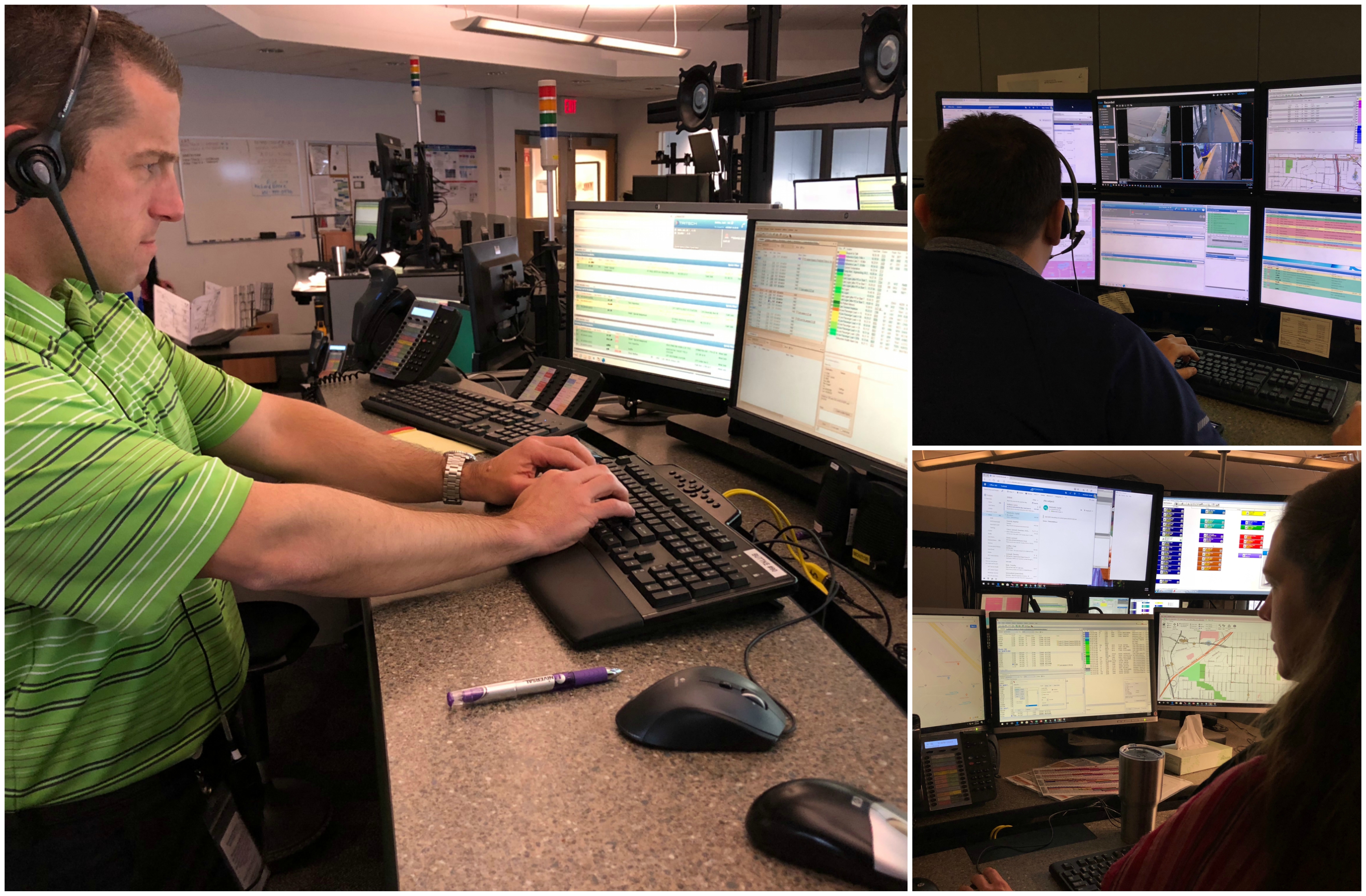
"When I was a boy and I would see scary things in the news, my mother would say to me, "Look for the helpers. You will always find people who are helping." -- Mr. Rogers
Officially and across the country, they’re known as public safety telecommunicators. At Metro Transit, they're known as Transit Control Center supervisors.
And while their work revolves in large part around keeping service on schedule, they also handle public safety calls that come in through 911, on-board alarms or emergency phones at transit stations.
“Because we’re the ones taking the call, we’re the lifeline between the public, who need help, and emergency responders,” TCC Supervisor Chad Ladda said.
National Public Safety Telecommunicator Week recognizes this work, and the importance of having a reassuring voice at the other end of a potentially terrible phone call. The celebration originated nearly 40 years ago, when public safety telecommunicators were struggling to be recognized.
In 2018, TCC supervisors handled more than 73,000 calls, texts and radio messages from customers, operators and police officers. Their call volume has steadily risen over the years as the region’s transit system has grown. Calls can come from anywhere throughout the seven-county metro region.
Many of the calls are initiated not by individuals but by police officers and operators who have been trained to be vigilant and proactive observers. In some cases, these observations have little to do with transit itself.
TCC supervisor Heather Gravink recalled a recent situation in which a bus operator saw an eight-year-old boy walking barefoot in his pajamas. The operator called the TCC and Gravink contacted police, who safely returned the boy to a family member’s home.
“In that moment, it didn’t matter if the bus was late,” Gravink said. “It was about taking care of a child who really needed it and getting the best possible outcome.”
Getting the right outcome also means taking every call seriously. Seemingly harmless situations could turn out to be much more consequential or even life threatening. For instance, someone who appears to be asleep may actually need immediate medical attention.
“A person’s life could hang in the balance based on my response to them,” TCC Supervisor Todd Messer said.
While the work can be stressful, TCC supervisors have become adept at staying calm and patient, reassuring whoever’s on the other end of the line while ensuring emergency responders have all the information they need.
“It’s our job to make sure everyone – customers, cops, medics, whoever it is – goes home at the end of the day," Gravink said.
Story by Chris Cantoni, who is one of three communications specialists in the Transit Control Center. TCC communications specialists create and send Rider Alerts, provide service updates on social media and coordinate responses to customers using the new Text for Safety service.